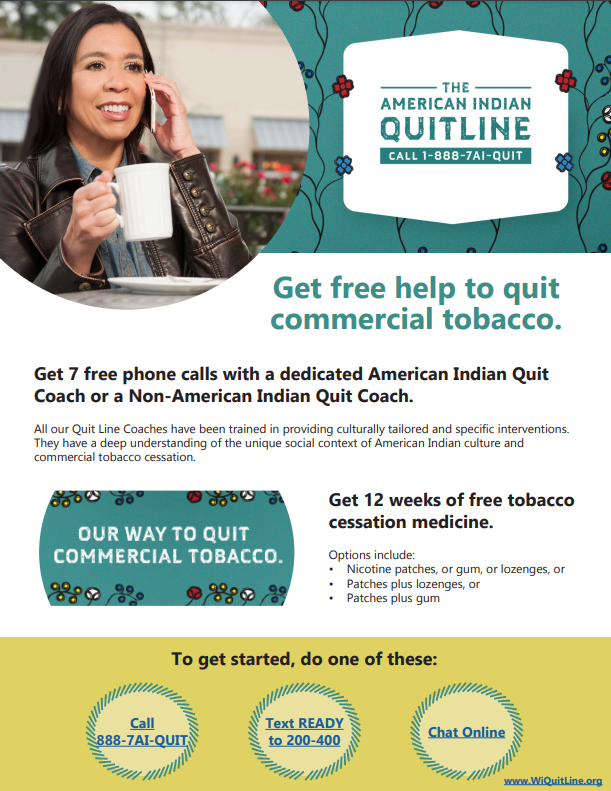American Indian Quitline Flyer
This one-page flyer highlights the services available through the American Indian Quitline, a program tailored to providing culturally appropriate and specific interventions around commercial tobacco cessation.
Services include:
-7 free phone calls with a dedicated American Indian Quit Coach or a Non-American Indian Quit Coach
-12 weeks of free tobacco cessation medicine, options including nicotine patches, or gum, or lozenges, OR patches plus lozenges, OR, patches plus gum
The American Indian Cancer Foundation (AICAF) collaborated on this program. AICAF organized focus groups with tribes to gather input on building a successful American Indian program, and that input informed the development of our American Indian Program. It covered topics such as balancing support for quitting commercial tobacco while respecting traditional tobacco use, communicating effectively, building trust, and the importance of Elders in American Indian culture.

